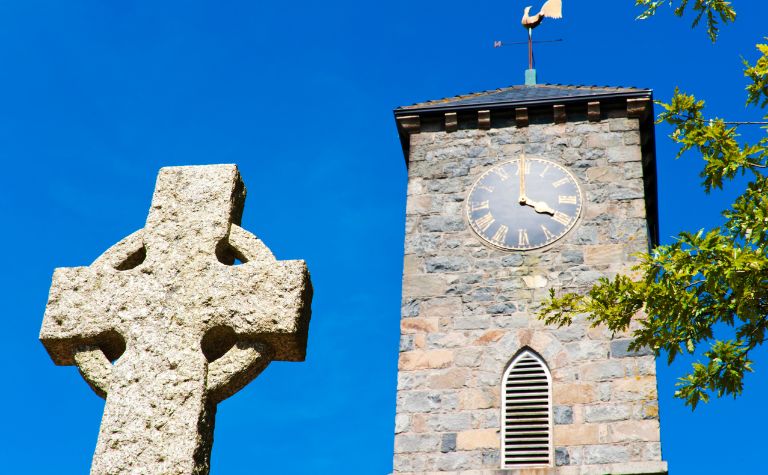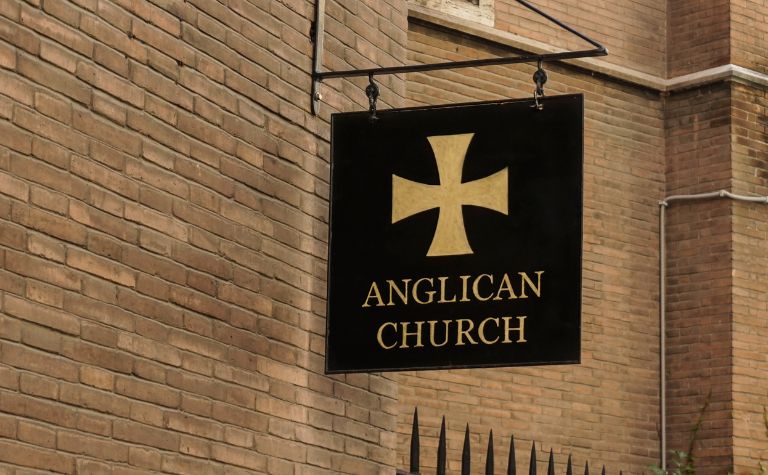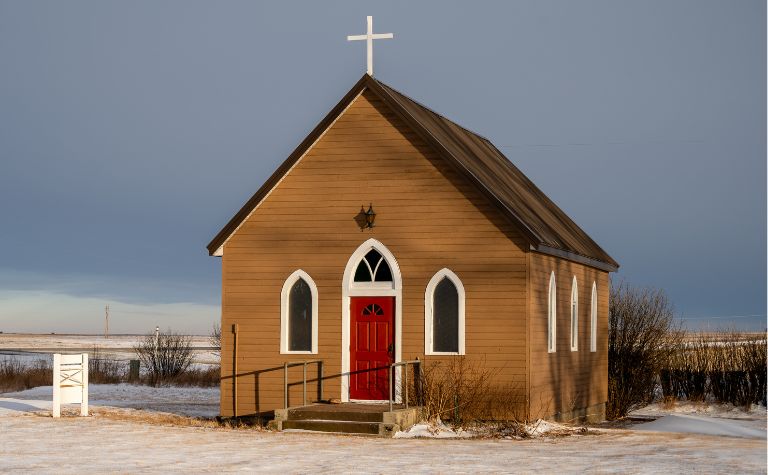Anglicanism and the Reformed tradition are two influential branches of Christianity with distinct histories, beliefs, and practices.
Originating in England and the Swiss-German regions, respectively, each has made a lasting impact on the global Christian landscape.
This article aims to compare Anglicanism and the Reformed tradition, highlighting key differences and similarities.
From their origins to their views on sacraments and social issues, we’ll explore what sets each apart.

Comparing Anglicanism and the Reformed Tradition: An Overview
The term “Anglicanism” comes from the Latin word “Anglicana,” meaning “English,” and the suffix “-ism” to denote the religious tradition originating in England.
“Reformed” refers to the Christian tradition that emerged from the Reformation, aiming to “reform” or improve upon existing religious practices and beliefs.
| Anglicanism | Reformed | |
|---|---|---|
| Name | Anglicanism | Reformed Tradition |
| Size | Approx. 85 million worldwide | Approx. 60-80 million worldwide |
| Date Started | 1534 | Early 16th century (around 1520s) |
| Founder | King Henry VIII | John Calvin, Ulrich Zwingli |
| Key Beliefs | Via Media (Middle Way), Apostolic Succession, importance of liturgy | Sovereignty of God, predestination, Covenant Theology |
| Key Practices | Worship services, baptism, holy communion, confirmation | Worship services, baptism, holy communion |
| Divisions | Church of England, Episcopal Church (USA), Anglican Church of Canada | Presbyterian, Congregational, Reformed Church in America |
| Central Location | Canterbury, England | No central location; strong presence in Switzerland, Scotland, and the Netherlands |
| Sacred Texts | Bible (Old and New Testaments), Book of Common Prayer | Bible (Old and New Testaments) |
Why is Anglicanism called the Middle Way?
Anglicanism is often called “The Middle Way” because it seeks to strike a balance between Protestantism and Catholicism.
It incorporates elements of both traditions, such as the Protestant emphasis on the Bible and the Catholic focus on liturgy and sacraments, aiming for a moderate, comprehensive approach.
What is Covenant Theology?
Covenant Theology is a framework in Reformed theology that views God’s relationship with humanity through the lens of covenants, or agreements.
It typically identifies three main covenants: the Covenant of Works with Adam, the Covenant of Grace with Christ, and the Covenant of Redemption within the Trinity.

Anglican and Reformed Christianity Beliefs: Differences
Anglicans and Reformed Christians believe in the Trinity. See the table below to learn more about their similarities and differences.
| Anglican Beliefs | Reformed Beliefs | |
|---|---|---|
| Bible | Authoritative; interpreted through tradition | Infallible and inerrant; ultimate authority |
| God | One God in three persons; omnipotent, omniscient | One God in three persons; sovereign, omnipotent, omniscient |
| Jesus Christ | Fully God and fully man; Savior of humanity | Fully God and fully man; predestined Savior |
| Trinity | Father, Son, and Holy Spirit; co-equal | Father, Son, and Holy Spirit; co-equal |
| Holy Spirit | Active in the church; sanctifies believers | Active in predestination; sanctifies believers |
| The Atonement | Christ’s sacrifice redeems humanity; varies by theological stance | Christ’s sacrifice predestined for the elect |
| The Resurrection | Literal and bodily resurrection of Jesus | Literal and bodily resurrection of Jesus |
| The Church | Apostolic succession; universal and local | Covenant community; universal and local |
| Church Tradition | Important but secondary to the Bible | Less emphasis; Bible takes precedence |
| The Second Coming | Awaited; details vary by theological stance | Awaited; often tied to predestination and election |

Anglican and Reformed Practices Compared
| Anglican | Reformed | |
|---|---|---|
| Worship Services | Highly liturgical, follows Book of Common Prayer | Less liturgical, focused on preaching |
| Sacraments | Baptism, Holy Communion, and Confirmation | Baptism and Holy Communion |
| Prayer | Book of Common Prayer often used | Extemporaneous; no set prayer book |
| Clergy | Priests, bishops; some branches ordain women | Ministers, pastors; some branches ordain women |
| Church Governance | Episcopal (bishops have authority) | Presbyterian or Congregational |
| Bible Study | Encouraged; often part of church activities | Strong emphasis; central to faith practice |
| Fasting | Optional; some observe Lent and Advent | Less emphasis; varies by denomination |
| Music | Traditional hymns; choral music common | Hymns and Psalms; some branches avoid instruments |
| Social Outreach | Various charitable and social justice programs | Various charitable and social justice programs |
In Anglicanism, the High Church refers to Christian traditions that emphasize formal liturgy, rituals, and the authority of clergy.
Low Church, on the other hand, focuses on a simpler, less formal worship style and often gives greater emphasis to the Bible over tradition.
Communion in Anglicanism and the Reformed Tradition
| Anglican | Reformed | |
|---|---|---|
| Nature of Elements | Real Presence or Symbolic: Views vary, but Christ is generally believed to be truly present | Spiritual Presence: Christ is spiritually, not physically, present |
| Who Can Participate | Baptized believers; some churches also require confirmation | Baptized believers; some churches also require a profession of faith |
| Frequency | Varies; often weekly in many churches | Varies; often monthly or quarterly |
| Form of Bread | Usually unleavened; varies by church | Usually unleavened; varies by church |
| Use of Wine or Grape Juice | Wine is common; some churches offer grape juice | Wine or grape juice; varies by church |
| Administration | By ordained clergy | By ordained clergy |
| Liturgical Setting | Part of the Eucharistic service; follows Book of Common Prayer | Part of regular worship service; less liturgical |
| Role in Salvation | Means of grace; varies by theological stance | Means of grace; strengthens faith |
The Real Presence view holds that Christ is truly present in the elements of bread and wine during Communion, though not physically.
The symbolic view sees the bread and wine as mere symbols that represent Christ’s body and blood, without believing that He is actually present in them.
Baptism in Anglicanism and the Reformed Tradition
| Anglican | Reformed | |
|---|---|---|
| Mode of Baptism | Sprinkling, pouring, or immersion | Sprinkling, pouring, or immersion |
| Age of Candidates | Infants and adults | Infants and adults |
| Who Can Baptize | Ordained clergy | Ordained clergy |
| Formula | Trinitarian: “In the name of the Father, and of the Son, and of the Holy Spirit” | Trinitarian: “In the name of the Father, and of the Son, and of the Holy Spirit” |
| Necessity for Salvation | Generally considered a means of grace; varies by theological stance | Considered a means of grace; covenantal sign and seal |
| Role of Faith | Faith and Baptism together are important | Faith receives the benefits of Baptism |
| Confirmation | Separate sacrament, usually performed later in life | Not a separate sacrament; profession of faith often required |
| Sponsors/Godparents | Commonly used | Less common; varies by denomination |
| Liturgical Setting | Part of regular worship service or special service | Part of regular worship service |
| Recognition by Other Denominations | Generally recognized by other Christian denominations | Generally recognized by other Christian denominations |
10 Key Events in Anglican and Reformed History
| Rank | Anglican History Events | Reformed History Events |
|---|---|---|
| 1 | 1534: Act of Supremacy establishes Church of England | 1523: Zwingli’s 67 Articles in Zurich |
| 2 | 1549: First Book of Common Prayer published | 1536: Calvin’s “Institutes of the Christian Religion” published |
| 3 | 1559: Elizabethan Religious Settlement | 1541: Calvin returns to Geneva |
| 4 | 1604: King James Version of the Bible published | 1561: Belgic Confession adopted |
| 5 | 1662: Revised Book of Common Prayer published | 1618-1619: Synod of Dort |
| 6 | 1789: Episcopal Church in the U.S. established | 1643-1647: Westminster Assembly |
| 7 | 1867: First Lambeth Conference | 1706: First American presbytery in Philadelphia |
| 8 | 1888: Chicago-Lambeth Quadrilateral adopted | 1816: American Bible Society founded |
| 9 | 1960s: Anglican Communion expands ordination of women | 1924: “Five Points of Calvinism” formulated |
| 10 | 2003: Gene Robinson, openly gay bishop, consecrated | 1948: World Council of Churches founded |
Related Questions
Exploring the world's religions using the comparison charts below offers fascinating insights into cultures and beliefs. It opens doors to understanding human history, values, and...
Explore the rich diversity of Christian denominations. Learn how varied beliefs, practices, and traditions shape the Christian faith. Understanding these differences can deepen your insight into...
